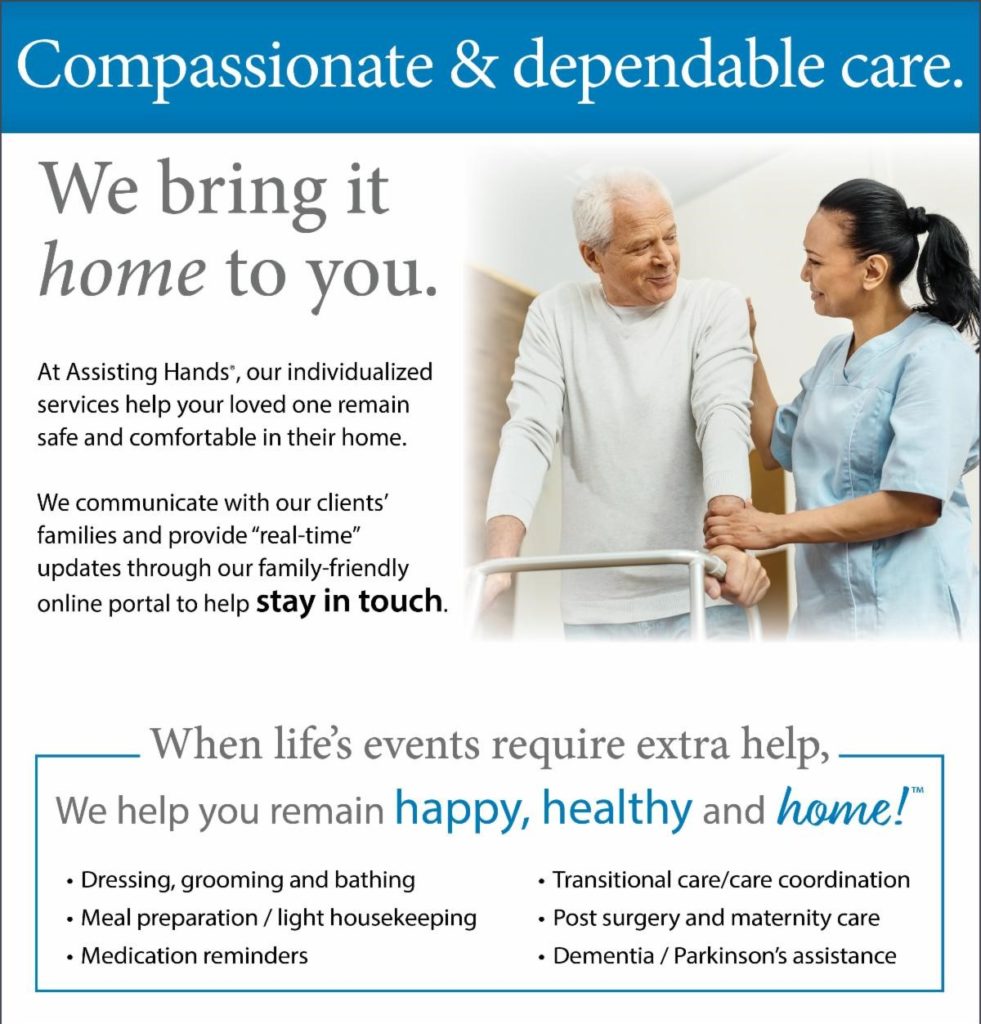When seniors begin to decline cognitively or physically, completing the activities of daily living becomes challenging. Adult children are usually the first to notice the changes, but an aging parent might refuse home care. Convincing them to accept extra help promotes health and safety.
An elderly parent’s physical and emotional health at home is paramount. When the senior forgets to take important medications that are necessary to sustain health and prevent the worsening of disease, adult children should be worried. Or, isolation can lead to depression, another concern.
The senior may neglect not only self-care activities, like bathing and preparing meals, but home maintenance tasks. The laundry may go unwashed for weeks; weeds may take over the yard; or utility bills may go unpaid. When the home is unmaintained, the aging parent’s safety is at risk.

Extra support at home is the solution to the senior’s inability to maintain a fully independent lifestyle, whether that is due to the gradual onset of cognitive or physical impairments. Home care services are designed to meet the care needs of seniors in the comfort and familiarity of home.
But presenting the idea of home care to a senior can be met with opposition. An elderly parent may view home care with trepidation—seeing it as an invasion of privacy. Or, they fear they will lose their dignity when a professional caregiver is assigned to help them with tasks.
These fears and worries are understandable, and adult children should be the first to recognize this. Aging can be scary, being filled with unknowns about the future. It is essential to approach the topic of home care with empathy and sensitivity so that the parent feels understood.
-
Offer Choices
Frame the introduction of home care in a way that offers the elderly parent choices. Many seniors erringly assume that accepting help means giving up control. Correct the parent by letting them know that professional caregivers are an advocate for the elderly, ensuring their voices are heard.
-
Be Patient
Show patience, even when the aging parent continues to resist. Discuss how home care is a benefit both medically and practically, allowing the senior to be more independent at home for as long as possible. Aging in place is preferred by the majority of seniors.
-
Start Gradually
Change, like aging, can be frightening. Allow the senior to warm up to the idea of a professional caregiver. Suggest hiring home care for a few hours per week. Once the senior becomes comfortable with the caregiver, increase the duration of home care services, as necessary.
-

-
Show How Safety Improves
An elderly parent who has fallen may be apprehensive about being alone. Home care professionals reduce those fears since they are present in the home whenever the senior needs help and are trained to respond to emergencies. Seniors who are aware of this benefit may accept home care.
Furthermore, professional caregivers assess the home environment frequently for hazards. They remove clutter that blocks pathways, stabilize rugs to prevent tripping, and check that the bed is easily accessible. Convey to the senior how efforts by home care professionals promote safety.
-
Discuss How Social Health Improves
A high quality of life is achievable well into an elderly parent’s golden years when they enjoy emotional health. Companion care is especially vital to prevent social isolation and the resulting depression. Caregivers equally address physical, social, and emotional health.
An aging parent will be more receptive to home care when they realize a companion caregiver provides social engagement, such as through conversations, games, and outings. Additionally, caregivers transport the elderly to senior centers for events and activities with peers.

-
Show How Physical Health Improves
Physical health is improved by home care, too. Caregivers encourage physical activities and schedule exercise into the senior’s day. Plus, elderly parents eat nutritiously when caregivers shop for fresh groceries and prepare balanced meals in accordance with their dietary restrictions.
-
Invite Third Parties
Give the parent control by asking about their priorities and then offering choices. Aging in place is often a priority, making home care an ideal solution. If the senior still refuses, invite an objective third party, like a physician, counselor, or faith leader, to discuss the benefits of home care.
Similarly, friends can offer valuable input. If the family knows of aging friends who receive quality home care, these individuals can share their experiences with the doubting parent. A friend’s positive experience can help persuade an aging parent to give home care a try.
An elderly parent may be inclined to accept home care when they understand the benefits mentioned above, instead of assuming they’ll automatically lose their freedom, control, and lifestyle. Adult children should give their parents options, one of which is home care from Assisting Hands Home Care.

Assisting Hands Home Care
We are a reputable elder care agency with a staff of compassionate caregivers who are dedicated to meeting the care needs of seniors. Our priorities include improving a senior’s overall quality of life, and we achieve this by providing home care services that promote physical and emotional health.
Our caregivers help our care recipients feel confident and comfortable by providing assistance with personal hygiene tasks. If your elderly loved one requires help getting into or out of bed or support moving around the home, our transfer assistance becomes invaluable.
Care services include transportation to doctors’ offices, senior centers, and social activities. Caregivers from Assisting Hands Home Care are also excellent companions. Our pleasant conversations, outings, and participation in recreational activities or hobbies prevent seniors from feeling lonely and isolated.
Families and their elderly loved ones enjoy flexibility when they choose our home care agency. Seniors who are unsure of home care may start with occasional respite care, for instance. We are also available for live-in care, hospice care, post-surgical care, and quality memory care.

Florida seniors thrive with in-home care from Assisting Hands Home Care. When you are ready to schedule home care for your elderly parent, contact us. We’ll set up an in-home consultation to assess care needs. Call today and enhance your loved one’s next chapter of life.
